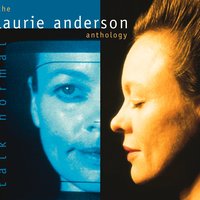| So Happy Birthday |
|---|
| JOE: In our country, you’re free and so you’re born and so they say, «You're free,» so happy birthday. |
| And even if you were born to lose--even if you |
| were a complete wreck when you were born--you might still grow up to be |
| president … because you’re free |
| GERALDINE: Today, you might be an average citizen … a civilian … |
| a pedestrian … But tomorrow you might be elected to some unexpected |
| office--or sell your novel and suddenly become famous. |
| Or you could get run |
| over by a truck and your picture could get into the papers _that_ way. |
| Because you’re free and anything might happen … so happy birthday |
| JOE: Gee! |
| All those lights and all those screens! |
| The New York Experience is |
| mind-boggling. |
| I don’t think I’ve ever seen that many screens and I’ll probably |
| come again … It was really amazing, mind-boggling |
| GERALDINE: You’re walking and you don’t always realize it but you’re always |
| falling at the same time. |
| With each step you fall forward. |
| Over and over, |
| you’re falling and then catching yourself from falling … And this is how you |
| can be walking and falling at the same time |
| JOE: Look! |
| Over there! |
| It’s a real dog … and it’s really talking |
| GERALDINE: I wanted you and I was looking for you … but I couldn’t find you. |
| I wanted you and I was looking for you all day … but I couldn’t find you |
| JOE: Well, I paid my money, and I’ve got this funny feeling that somehow--you |
| know--it's not what I paid my money for. |
| I mean I _paid_ my money and I just |
| don’t think this is what I paid my money--you know--what I paid my money for |
| GERALDINE: No one has ever looked at me like this before … no one has ever |
| _stared_ at me for so long like this … This is the first time anyone has ever |
| looked at me like this … stared at me like this for such a long time … |
| for so long |
| JOE: Well, he didn’t know what to do so he just decided to watch the government |
| and see what the government was doing and then kind of scale it down to |
| size--and run his life that way |
| GERALDINE: She said the hardest thing to teach her three-year-old kid was what |
| was alive and what wasn’t. |
| The phone rings and she holds it out to her kid and |
| says, «It's Grandma. |
| Talk to Grandma.» |
| But she’s holding a piece of plastic. |
| And the kid says to herself: «Wait a minute. |
| Is the phone alive? |
| Is the TV alive? |
| What about that radio? |
| What is alive in this room and what |
| doesn’t have life?» |
| Unfortunately, she doesn’t know how to ask these questions |
| JOE: We were in a large room. |
| Full of people. |
| All kinds. |
| And they had arrived |
| at the same time. |
| And they were all free and they were all asking themselves |
| the same question: What is behind that curtain? |
| They were all free. |
| And they were all wondering what would happen next |
| GERALDINE: This is the time and this is the record of the time |
Lyrics So Happy Birthday - Laurie Anderson

Song information On this page you can read the lyrics of the song So Happy Birthday , by -Laurie Anderson
Song from the album: Talk Normal: The Laurie Anderson Anthology
Release date:03.01.2005
Song language:English
Record label:Rhino, Warner
Select which language to translate into:
Write what you think about the lyrics!
Other songs by the artist:
| Name | Year |
|---|---|
| 2005 | |
| 2008 | |
| 2005 | |
| 2010 | |
| 2005 | |
| 2005 | |
| 2008 | |
| 2008 | |
| 2005 | |
| 2008 | |
| 2005 | |
| 2007 | |
| 2010 | |
| 2007 | |
| 2008 | |
| 2008 | |
| 2008 | |
| 2001 | |
| 2008 | |
| 2001 |